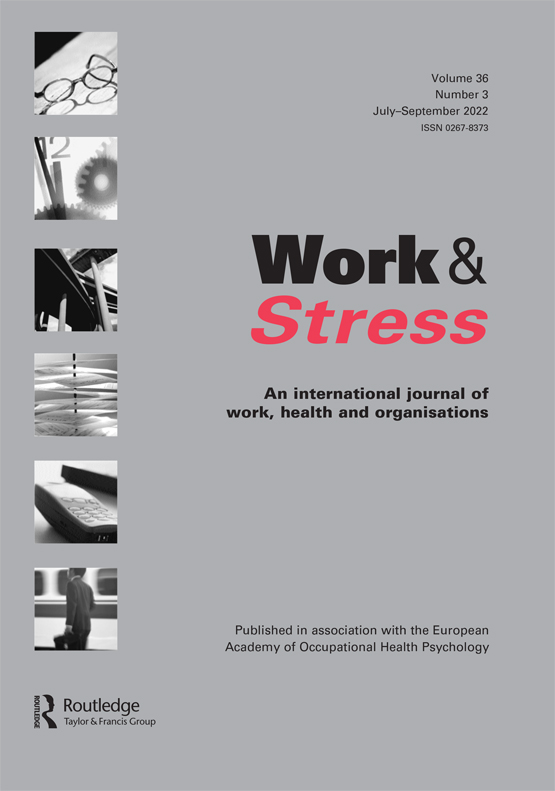 Afsharian, A., Dollard, M.F., Dormann, C., Ziaian, T, & Winefield, T. (in press). PSC through the Lens of Dispersion-Composition Model: The Beneficial Effects of PSC Ideal as a High and Strong PSC Signal. Work & Stress. doi: 10.1080/02678373.2022.2120561
Afsharian, A., Dollard, M.F., Dormann, C., Ziaian, T, & Winefield, T. (in press). PSC through the Lens of Dispersion-Composition Model: The Beneficial Effects of PSC Ideal as a High and Strong PSC Signal. Work & Stress. doi: 10.1080/02678373.2022.2120561
Abstract: We investigated the Psychosocial Safety Climate (PSC) construct and its role in attenuating the negative effects of job demands (i.e. emotional and psychological) on psychological health (distress, emotional exhaustion, and depression). In particular, we used composition theory to understand how organisational PSC could be derived from individual perceptions of PSC. We introduce a relatively new construct, PSC Ideal, which combines PSC level and dispersion (variability; SD). We expected that the attenuating role would be strongest when organisational PSC Ideal was high; high (on level) and strong (less variability). Statistically, PSC Ideal implies taking account of PSC Level and its variability simultaneously. A hierarchical sample of 41 organisations with 495 participants was analysed from Australian Workplace Barometer data. In four out of six analyses, PSC Ideal significantly moderated the effects of job demands (particularly emotional demands) on psychological health (emotional exhaustion, psychological distress, depression). The promising moderation role of PSC Ideal implies that the disruption of the job demands and poor psychological health relationship requires consideration of PSC levels and strength in combination, rather than level alone. Theoretical and practical recommendations highlight the role of PSC Ideal in ameliorating and preventing the negative impact of work demands.